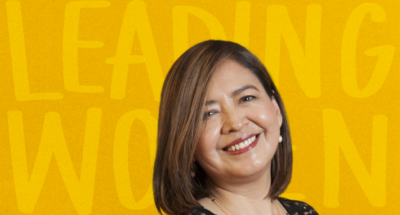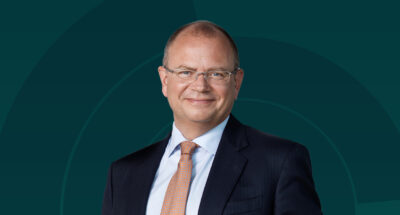
How to teach an entrepreneur to let go
Biotech entrepreneur Juana Lucia Flores-Candia explains that technology has changed the way to mentor chief executives. Here are her three ways to get entrepreneurs to focus....

Published 11 October 2023 in The Female Quotient • 5 min read

Let’s look at some eye-opening data from the Sustainable Development Goals report for 2023. Currently, women are 140 years away from achieving equal representation of women in positions of power and leadership in the workplace. This is despite the well-documented benefits of having women in leadership roles.
Moreover, at the current pace, it will take us 286 years to eliminate discriminatory laws against women, 47 years to attain equal representation in parliamentary positions, and a staggering 300 years to end child marriage. These figures are not specific to India; they are universal and reflect the global struggle for gender equality.
Preeti D’mello, Chief Diversity Officer at TCS, has over 30 years of diverse industry expertise in corporate, consulting, and entrepreneurial settings, with a focus on leadership development, coaching, and talent engagement. Further, she established and led the Centre of Excellence for Coaching and Leadership Development, which offers large-scale developmental programs. She believes that by addressing the challenges that persist and working collaboratively, society can turn the aspiration of gender equality into a concrete reality.
“The absence of equality is a crisis that will not resolve by itself. Being a part of this societal system – whether at home, within our families, or in the workplace – it’s time for women to step up and play their roles in leveling the playing field,” she says. “Women must actively engage and work to bring about change.”
Education is the foundation for transformative change, but what’s also important is empowering women to speak up for themselves.
Nitu Bhushan, CHRO at Pernod Ricard, South Asia, oversees the company’s human resources and talent management. CHROs typically play a crucial role in shaping an organization’s culture, managing its workforce, and ensuring alignment between HR initiatives and business objectives.
“The basic business case for having more women in the workforce is simple: if nearly 50% of the population is women, they should be reflected in the company,” she says. “It starts with intentional leadership and leadership commitment. It’s about creating genuine change, not just token gestures. Diverse teams perform better. It’s not just coincidental; it’s correlated.”
Empowering women is not just a moral imperative; it’s the key to unlocking a more equitable and sustainable world for all. So advocates Susan Jane Ferguson, Country Representative for UN Women India, who leads and oversees UN Women’s activities and initiatives in India related to gender equality, women’s empowerment, and the promotion of women’s rights.

The idea that “equality begins at home” is a fundamental concept in the quest for gender equality and broader social equity. It emphasizes that promoting equality, respect, and fairness should start within families and personal relationships. In a household, both partners should share responsibilities, including household chores, childcare, and decision-making. There must be an acknowledgement of the intersection of women’s roles at home and in the workplace. Gender norms often burden women with disproportionate care giving responsibilities, hindering their ability to assume leadership roles. Family-friendly policies and shared parental leave can alleviate these challenges.
Further, it is necessary to elevate women into leadership positions. Women in leadership roles bring increased productivity and emotional intelligence to the workplace. India’s success in local-level women’s representation through quotas stands as a remarkable example.
Women’s empowerment and closing the gender gap require a shift in perspective and a commitment to understanding and addressing women’s unique needs and aspirations. These needs can vary greatly among individuals. It’s about respecting individual choices and not imposing benevolent biases. To make this change happen, organizations must take a proactive stance, as advocated by Prachi Rastogi, Diversity and Inclusion Leader APAC at IBM. In this role, she played a significant role in shaping IBM’s diversity and inclusion strategies and initiatives in the APAC region, working to promote a diverse and inclusive workplace culture.
“Firstly, organizations, both in the private and public sectors, need leaders who champion gender equality and take personal responsibility for driving change. Gender equality should not be delegated solely to HR or diversity and inclusion teams; it’s a leadership imperative,” she says.
“Secondly, organizations should actively seek input from their employees, especially women, about their experiences and needs. Policies and programs should be informed by real experiences rather than assumptions.
“On a personal level, women should prioritize self-care, recognizing their physical, mental, and spiritual well-being. Self-care is not selfish; it’s a prerequisite for empowerment.
“Lastly, society as a whole must play a role in fostering respect, providing opportunities, ensuring security, and promoting education for all women. These foundational pillars are essential for women’s progress and equality, regardless of their circumstances or location.”
While undeniable progress has been made, stark disparities endure. Achieving genuine gender equality demands collective efforts from individuals, communities, governments, and organizations. By addressing the challenges that persist and working collaboratively, we can turn the aspiration of gender equality into a concrete reality. This vision isn’t just for the benefit of women; it’s a vision for a more equitable, inclusive and prosperous society for all.
This article is based on a panel discussion from The Female Quotient’s (FQ) Equality Lounge sessions at the G20 Summit in New Delhi. IMD is an academic partner of The Female Quotient, which joins forces with companies and leaders to curate experiences, thought leadership, and solutions designed to achieve gender equality in the workplace and beyond.

Chief Diversity Officer, TCS

Country Representative, UN Women India

CHRO, Pernod Ricard, South Asia

Diversity and Inclusion Leader, IBM

20 November 2023 • by Juana Lucia Flores-Candia in Leadership
Biotech entrepreneur Juana Lucia Flores-Candia explains that technology has changed the way to mentor chief executives. Here are her three ways to get entrepreneurs to focus....

17 November 2023 • by Michael D. Watkins in Leadership
Executives winning promotion must navigate their transition with a balance of humility, respect for legacy, and a vision for the future....

14 November 2023 in Leadership
Henrik Andersen discusses with IMD President Jean-François Manzoni the challenges of navigating supply chain disruptions and soaring raw material costs over the past three years, and why he changed the wind farm...

6 November 2023 • by Brenda Steinberg, Michael D. Watkins in Leadership
Strategic thinking is key to career advancement – but communicating it to others is just as important. Ask yourself these 10 questions to find more ways to demonstrate your strategic abilities to...
Explore first person business intelligence from top minds curated for a global executive audience